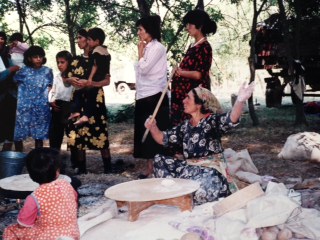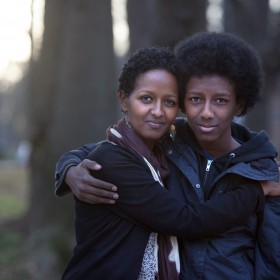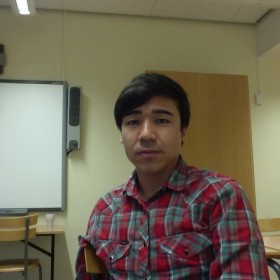Chris Boian – Freelance Journalist

 “Tea.” He motioned for me to sit. The old man was with a group of several dozen people who, hours earlier, had fled their village near the southern Azerbaijani town of Fizuli which had that day come under heavy shelling from advancing Armenian forces as the war for Nagorny Karabakh spilled outside the bounds of the disputed enclave itself. These people, among the first in the Fizuli district to arrive in the hot, dusty plain northwest of Horadiz along the Aras river that separates Azerbaijan from Iran, would be followed in the days ahead by many thousands more like them, the world’s newest refugees, or internally-displaced people, that summer of 1993. With the help of a couple of clapped-out cars, a flatbed farm wagon pulled by an ancient tractor, a donkey or two and a lot of worn suitcases, the people in this group had literally run for their lives until they could run no more, taking the clothes on their backs and what few possessions they could gather in the space of about an hour. A few had lost consciousness and been revived during their flight. All were on the verge of physical collapse from fear, thirst, heat.
“Tea.” He motioned for me to sit. The old man was with a group of several dozen people who, hours earlier, had fled their village near the southern Azerbaijani town of Fizuli which had that day come under heavy shelling from advancing Armenian forces as the war for Nagorny Karabakh spilled outside the bounds of the disputed enclave itself. These people, among the first in the Fizuli district to arrive in the hot, dusty plain northwest of Horadiz along the Aras river that separates Azerbaijan from Iran, would be followed in the days ahead by many thousands more like them, the world’s newest refugees, or internally-displaced people, that summer of 1993. With the help of a couple of clapped-out cars, a flatbed farm wagon pulled by an ancient tractor, a donkey or two and a lot of worn suitcases, the people in this group had literally run for their lives until they could run no more, taking the clothes on their backs and what few possessions they could gather in the space of about an hour. A few had lost consciousness and been revived during their flight. All were on the verge of physical collapse from fear, thirst, heat.
“Well, that’s it,” said the old man, who looked to be in his 70s. “Everything is gone.” A younger man, probably in his late teens or 20s, walked up and poured hot, sweet tea into the two glass cups before us, each glass sitting in the delicate, ornate, silver tea glass holders common in that part of the world. The man explained to me that those two tea glass holders and a military citation from his days in the Soviet army were the only possessions he had managed to salvage, save the clothes he was wearing, when he and his neighbors exited their homes for the last time and fled. Strangely, it was those tea-glass holders – podstakannik, as they are known in Russian – that struck me hardest that afternoon. Of all the things, all the collected artefacts of a long life, that a man in a life-or-death crisis would cherish most, these two somewhat tarnished items were what he chose. And in the half-hour that we talked, I began to understand why. I say “talked,” but in fact it was I, a 30-year-old foreign correspondent for Agence France-Presse at the time, who did most of the talking. Because this old man, this newly-minted itinerant, exhausted and traumatized yet deeply alive and curious, kept asking me questions: Where was I from? Why was I here? What did I think would happen next?
It’s a small anecdote. But it is a telling one. Being a wire reporter working in various conflict zones over the years, I have seen many refugees (or IDPs, if that distinction really must be made) – in Iraq, Kuwait, Tajikistan, Georgia, Armenia and Azerbaijan, among other places. I have usually encountered them in that fevered, existential moment between “the event” that forced them to leave everything and everyone behind and their first respite, when humanity steps up to provide life-saving relief and protection. All that I have seen share one thing: A brave and unbreakable determination to live.
Chris Boian
Freelance Journalist
Washington, DC










